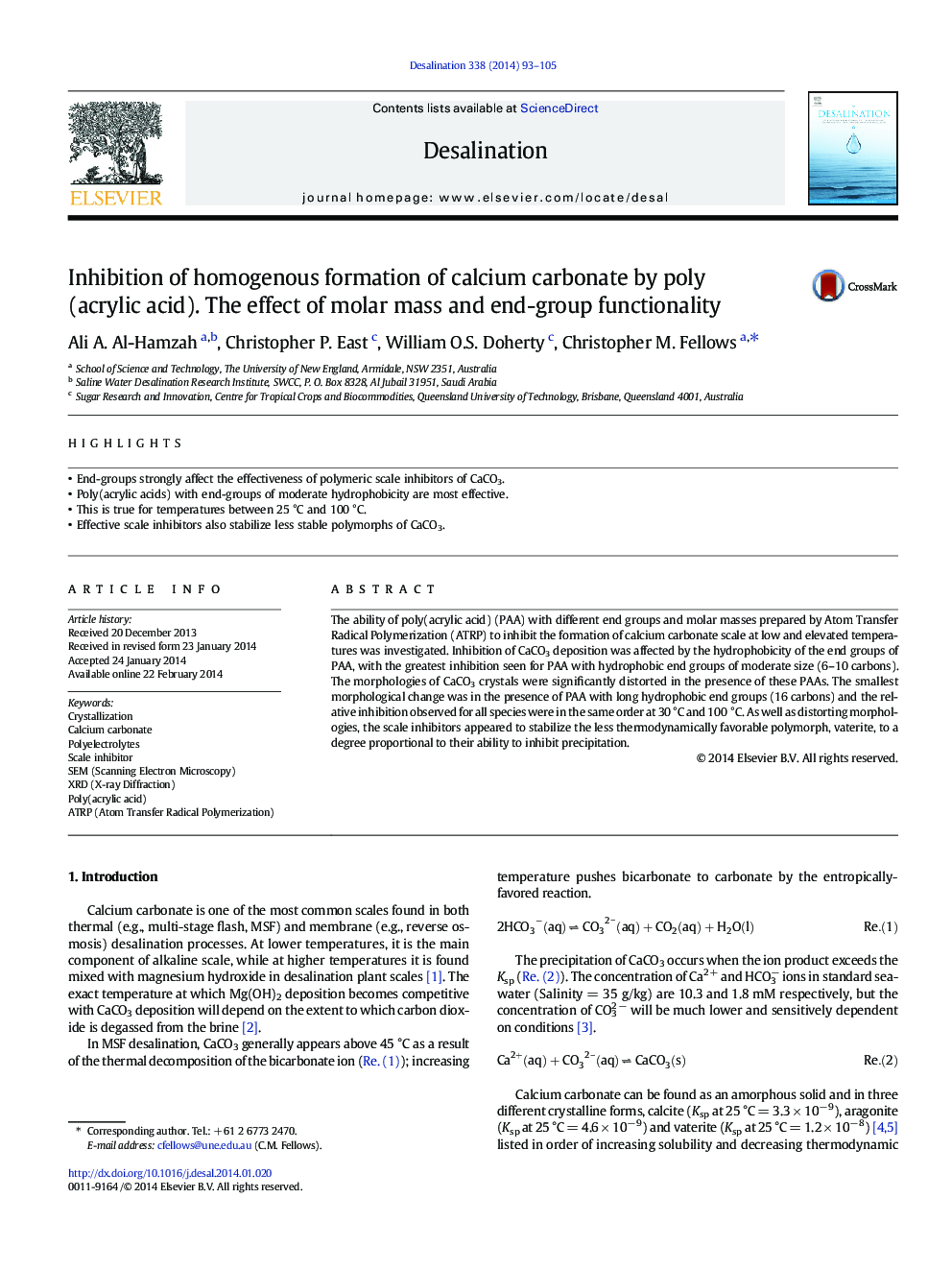| Article ID | Journal | Published Year | Pages | File Type |
|---|---|---|---|---|
| 623597 | Desalination | 2014 | 13 Pages |
•End-groups strongly affect the effectiveness of polymeric scale inhibitors of CaCO3.•Poly(acrylic acids) with end-groups of moderate hydrophobicity are most effective.•This is true for temperatures between 25 °C and 100 °C.•Effective scale inhibitors also stabilize less stable polymorphs of CaCO3.
The ability of poly(acrylic acid) (PAA) with different end groups and molar masses prepared by Atom Transfer Radical Polymerization (ATRP) to inhibit the formation of calcium carbonate scale at low and elevated temperatures was investigated. Inhibition of CaCO3 deposition was affected by the hydrophobicity of the end groups of PAA, with the greatest inhibition seen for PAA with hydrophobic end groups of moderate size (6–10 carbons). The morphologies of CaCO3 crystals were significantly distorted in the presence of these PAAs. The smallest morphological change was in the presence of PAA with long hydrophobic end groups (16 carbons) and the relative inhibition observed for all species were in the same order at 30 °C and 100 °C. As well as distorting morphologies, the scale inhibitors appeared to stabilize the less thermodynamically favorable polymorph, vaterite, to a degree proportional to their ability to inhibit precipitation.
